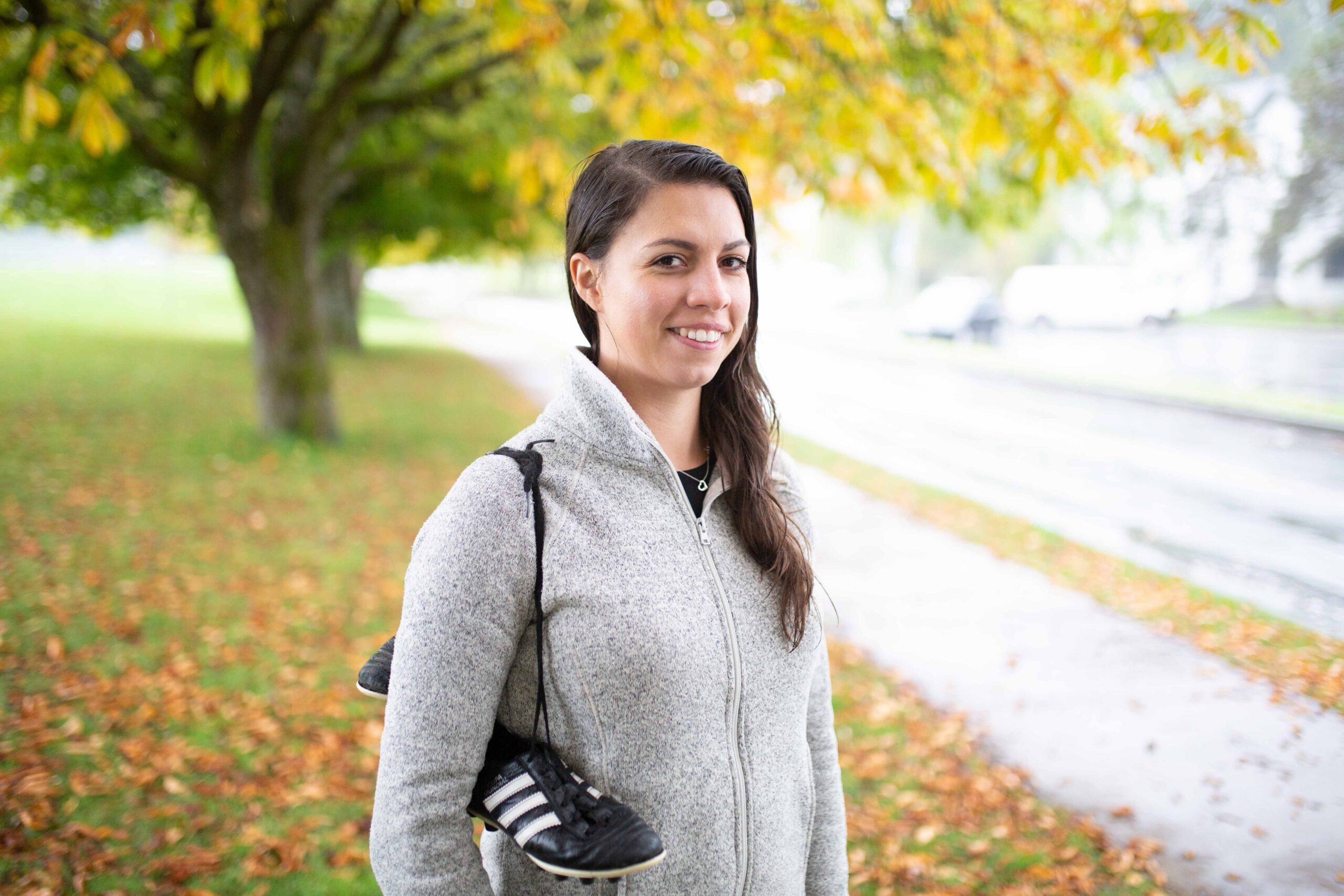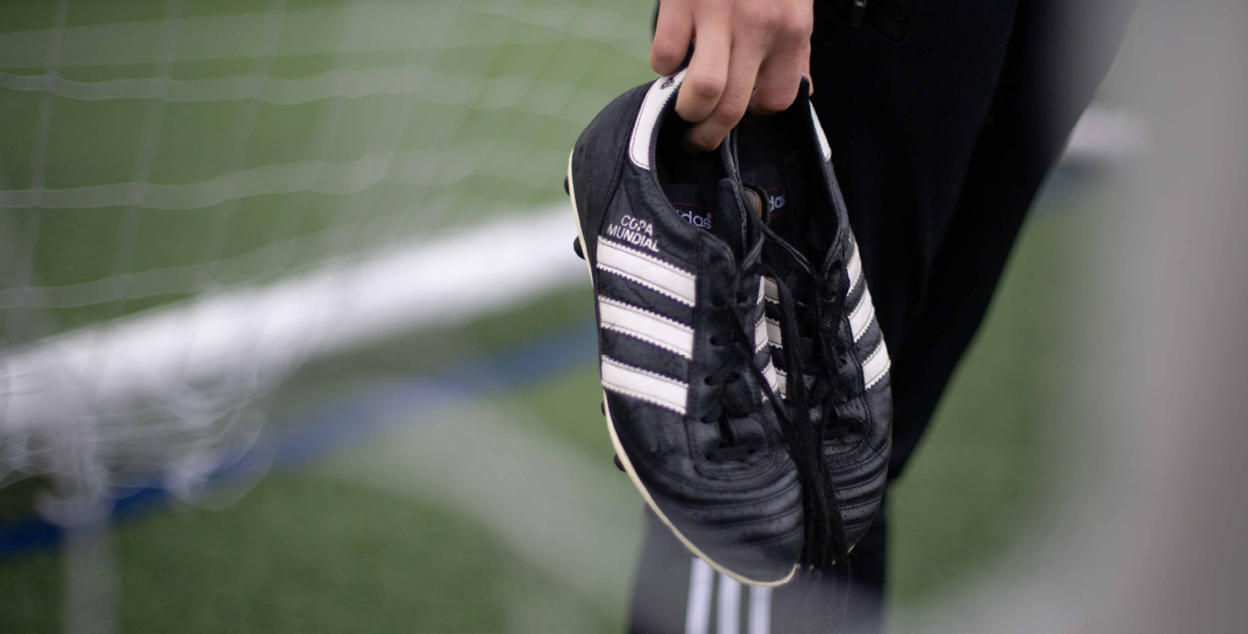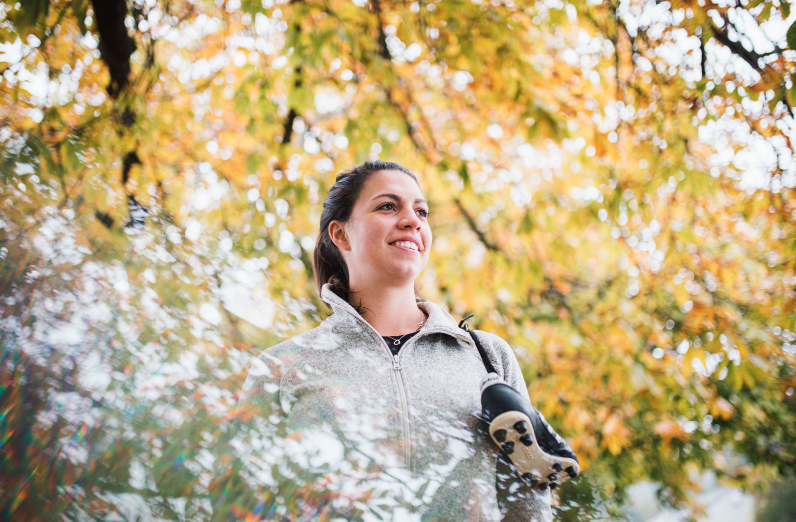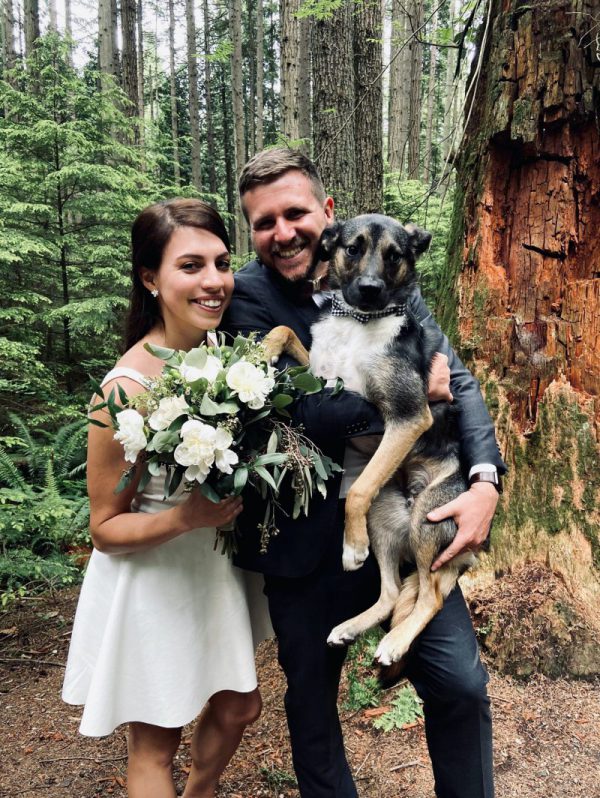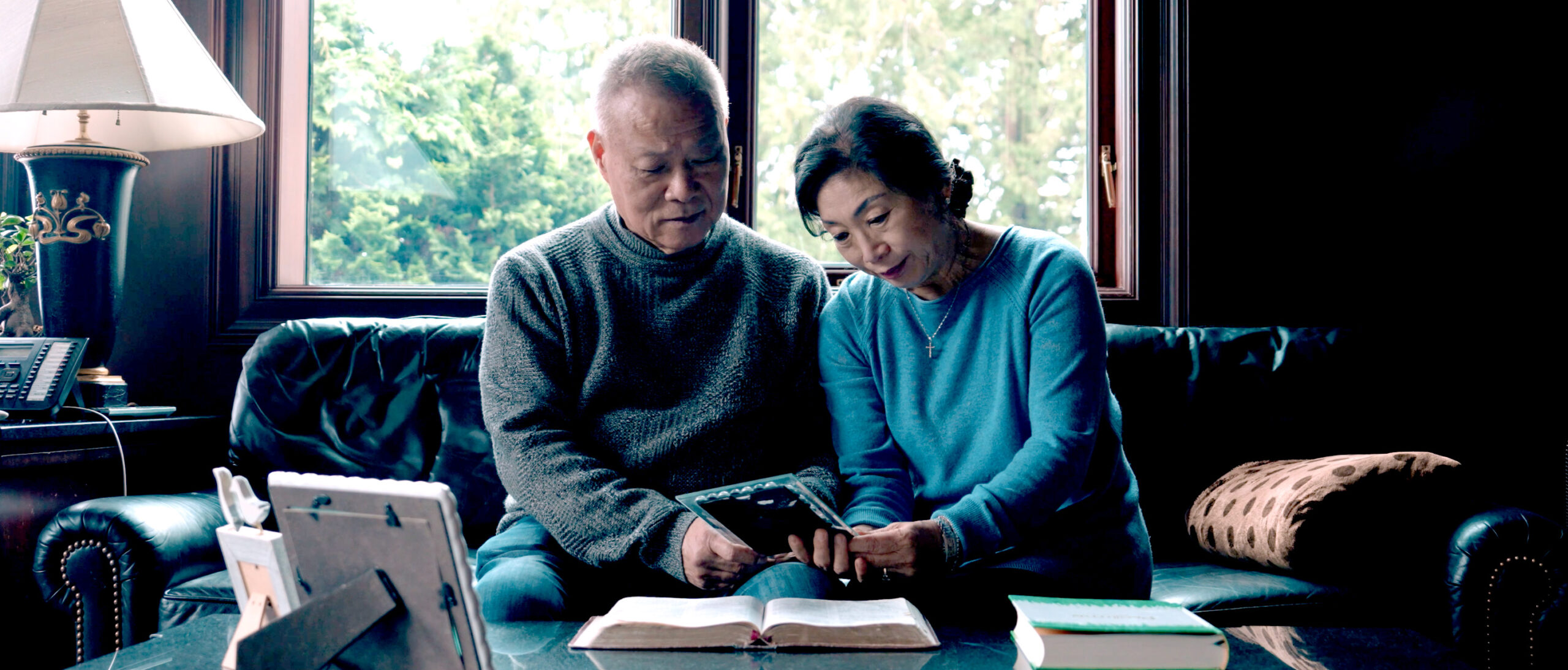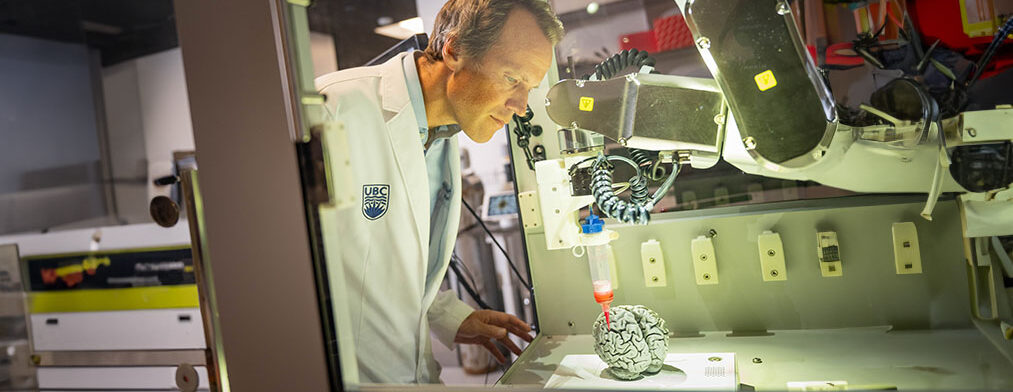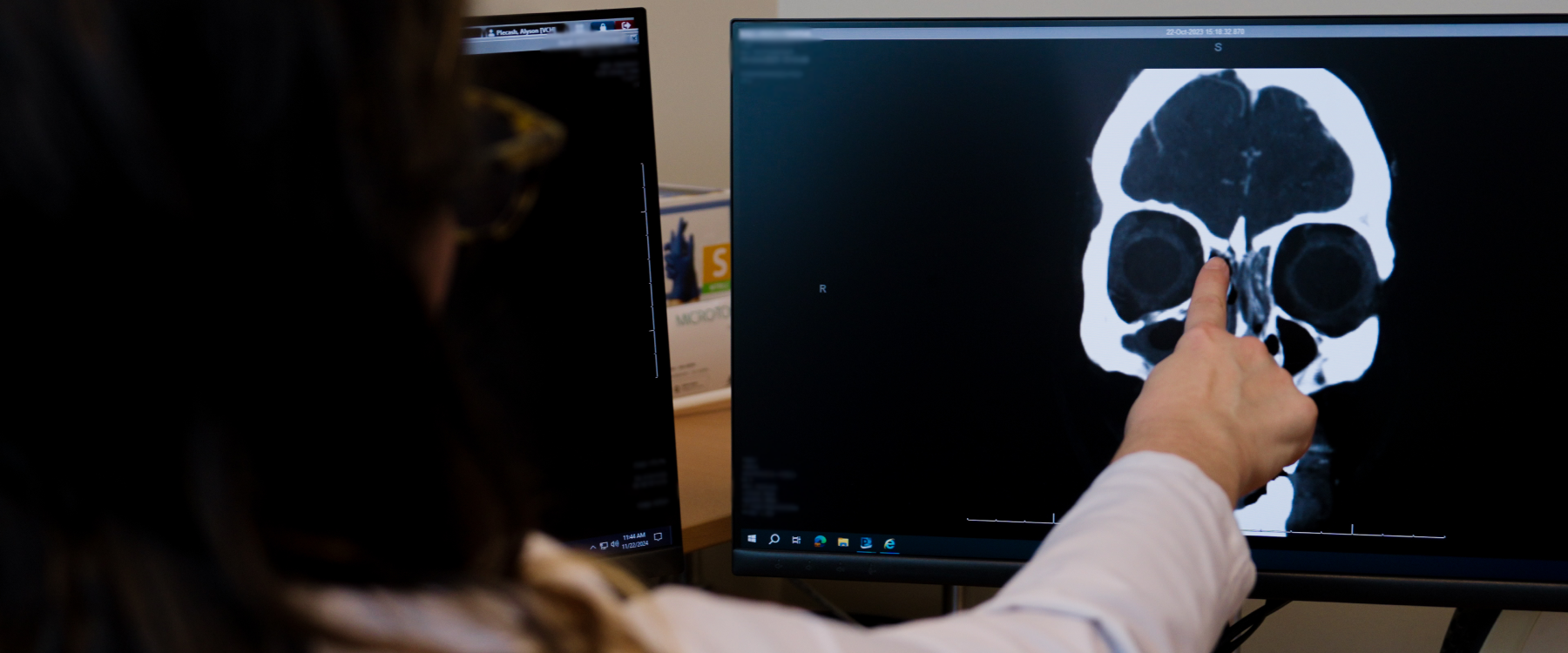“I just couldn’t get better. I tried to go to work, but I couldn’t concentrate. Everything was too bright, too noisy, and it was all very overwhelming. I didn’t know what was wrong with me — I was scared.”
Thalia Otamendi loved soccer. Ever since she moved to Canada from Mexico when she was 10 years old she was always on the field, playing, practicing and competing.
But over the years the sport took its toll on her body, and shortly after completing her undergrad she suffered a serious concussion while playing.
At first, Thalia thought the symptoms would go away on their own. But they only grew worse. After a few weeks she went to see local care providers for help, who told her to stay indoors in dark rooms until the symptoms subsided. This went on for months.
“I was feeling so overwhelmed, anxious and depressed,” says Thalia.
Thalia’s mental and physical health was steadily declining. She felt increasingly isolated and had no idea how to recover. That is until she met clinician-scientist Dr. William Panenka, a leading traumatic brain injury and concussion expert at VGH and UBC Hospital.
Modern problems require modern solutions
Dr. Panenka examined Thalia and determined that while her physiological concussion was healed, she was experiencing concussion-associated psychological symptoms. A treatment plan was created for Thalia based on the latest research. The goal was to give Thalia the tools she needed to return to society without the overwhelming anxiety and fear she was experiencing.
It took time, but slowly Thalia started to feel better. As her psychological symptoms subsided, she began seeing friends and family again, and above all she stopped living in fear. Once her mental health fully recovered, Thalia no longer required medication.
From patient to researcher
Thalia was so grateful for Dr. Panenka’s care that she has since gone on to acquire a Master’s in Kinesiology from UBC. Thalia is now a PhD student studying psychological effects in concussion patients.
“I don’t want other people to live through what I had to live through,” says Thalia. “That’s why my research is focused on the psychological component of concussion treatment. It’s a piece we’re missing right now, and I want to change that.”
Help patients like Thalia by supporting concussion care, treatment, research and recovery. Learn more
Concussion Facts
- Brain injury is the leading cause of death and disability for Canadians under the age of 40.
- Sports and recreational activities are important risk factors for concussion. Cycling, playground activities and hockey are the greatest contributors.
- Signs of a concussion can vary from sensitivity to light or noise, nausea, headaches, confusion and more.
Where is Thalia now?
In March 2022, VGH & UBC Hospital Foundation reconnected with Thalia Otamendi. We discussed her professional and personal life, and how she has grown in the past three years since her concussion.
In the years since her concussion, Thalia has taken tremendous steps forward in her life. She is currently halfway through her PhD program studying under Dr. Noah Silverberg focusing on the impacts of mental health following concussion. When she’s not working on that, she has been getting involved as a research assistant in tertiary research as well.
And despite the pandemic, Thalia has jumped leaps and bounds in her personal life. She got engaged and then married, took in a Mexican rescue dog (lovingly named Musli after the German cereal), and moved places.
“We were very productive,” Thalia says, laughing.
Fortunately, Thalia has also never seen a recurrence in her mental health symptoms. Her recovery is “near 100 per cent” she says. In fact, working through the concussion had its own benefits.
“The concussion experience helped me slow down,” says Thalia. “I feel like I used to fill my plate too much before that. During my recovery, it forced me to be more selective of the things I say yes to. I now feel very happy these days.”
Thalia is still grateful for the care she received at our health care centres, and plans to fulfill her dream of improving concussion care in BC.
Share this:
